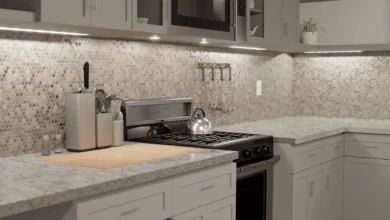How to Keep Your Basement Dry – Best Practices
Whether you use it as a bedroom, recreation space, or for anything else, your home’s basement can be one of your favorite rooms in your home. It can be a cozy space on a cold winter night. It can be your go-to room for hosting a birthday party or other gathering. To put it simply, the potential applications are virtually endless.
Because of this, you want to ensure that your basement is in great condition. One of the biggest threats to any basement is weather damage. Particularly, we are speaking about damage from rain or snow. If you are not able to keep it dry, you are at real risk of suffering long-term damage to your basement. Making the challenge even more frustrating is the fact that even if there is no flooding, there can still be damage to some of your belongings because of elevated humidity levels.
While you can hope for the best, you certainly want to plan for the worst. Therefore, in this article, you will find a list of tips that can help you keep your basement dry. Whether you implement some or all of these tips, you will substantially decrease the chances that your basement suffers any damage.
Five Strategies to Keep Your Basement Dry
To start, we recommend that you keep your gutters clean. Your gutters are a vital tool in helping protect your home’s foundation (and your basement) from water damage. Critically, your gutters should direct water to a safe distance from your home. Doing so will minimize potential water damage to your basement. But if your gutters are not clear, there is a real likelihood that rainwater or snow isn’t safely directed away from your home. Rather, it could rest at the base of your home, thereby leaking into your basement. Keeping your gutters clean, however, can minimize some of this risk.
Next, take advantage of water-resistant paint. Water-resistant paint naturally resists water pressure and can protect your basement walls from mold or mildew. The significant risk in your basement centers on moisture and condensation causing your walls to “weep.” If this occurs, you will see a noticeable difference in how your walls look. But with water-resistant paint, you can avoid this weeping effect on your basement walls.
From water-resistant paint, you will want to eliminate any excess humidity. Doing this will dry out your basement and lower the risks of long-term damage. As part of this strategy, think about using a dehumidifier to lower the indoor humidity. During the winter months, make sure that you keep your basement windows closed. A vent fan in your basement bathroom can also be a great way to eliminate humidity.
Fourth, insulate the pipes in your home. Without insulation, there is a real risk of water damage due to condensation from cold pipes. This condensation could drip down and lead to both short-term and long-term damage. To reduce this risk, you can cover your pipes with foam pipe insulation. This will go a long way in preventing condensation from your pipes from reaching your basement.
Finally, quickly patch or fill in cracks in your foundation. This is a critical task that you should complete as quickly as possible. Even tiny cracks in your home’s foundation can lead to water seeping into your basement. The simple fact is that many homes develop foundational cracks as they age. With this understanding, you should keep an eye out for even the smallest of cracks. Once you identify them, you can try filling them either with a waterproofing compound. If they are large cracks, however, you may need to clean them out and patch them (a professional can help with this if necessary).
Get Started Today
Keeping your basement dry is an ongoing process. It doesn’t just happen by itself. Nevertheless, the good news is that you can follow any or all of the strategies above to significantly decrease the chance of your basement suffering significant damage.
If you need help with this task or any other task, we invite you to contact Steve Schulz at Dry Basement Solutions. Steve and the Dry Basement Solutions team have more than 25 years of experience in basement waterproofing.




